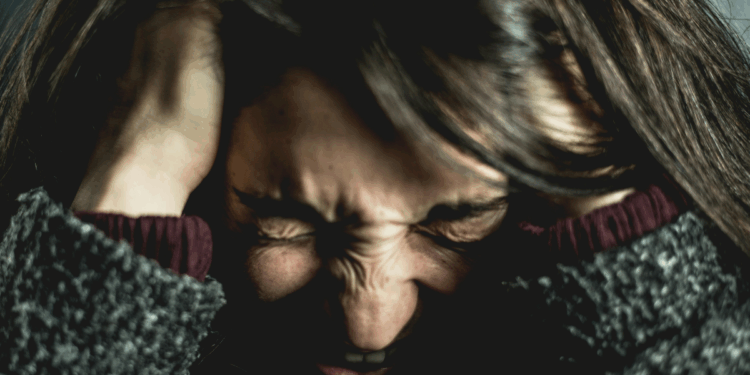I went back to grad school later in life. Thus, I was many years older, decades even, than my intellectual cohorts. I’ll never forget when a young lady in class, no older than 25, made a comment rather cavalierly about taking her SSRI pills. I was stunned at how natural this disclosure seemed to her. I suppose it was my look of surprise that prompted her to respond: “What? Isn’t everyone on SSRIs?”
The Girls Are Not Alright
I have since come to find out that, yes indeed, many people, particularly young adult women, are on some sort of anti-depressive medication. In my day, illicit drugs (such as alcohol and marijuana) were more the norm. Yet they still weren’t considered “normal” because they were — well — illegal. We had to sneak around to do it. We couldn’t walk into class with a joint or crack open a Natty Light in the middle of chemistry.
These days, however, kids do drugs with a doctor’s prescription and often, parental blessing. Maybe that is because adults who take medication for their depression, anxiety, and other mood disorders are in no way bashful about their reliance on medication. As a recent article in The Wall Street Journal entitled “Girl, Take Your Crazy Pills!” pointed out, SSRIs are the new Birkin bag — a status symbol and source of pride. Or as the Journal described them, a “hot lifestyle accessory.”
The Scourge of Social Media
A variety of cultural shifts have led to women’s declining mental status, including a high prevalence of social media use, particularly among younger girls. As Jonathan Haidt argues in his book The Anxious Generation, the steep increase in depression and anxiety in young girls, (aged 8-22), beginning somewhere between 2008 and 2010 corresponds with the mainstream adoption of the smartphone and social media. Increased self-harm episodes, emergency room visits, and suicide rates also spiked around this time in various countries, demonstrating this is not a problem unique to the United States.
Social media has helped spread the lies of feminism along with a new age culture of “self-help,” neither of which seems to have improved women’s mental stability. In a video on Instagram, a 33-year-old Canadian influencer triumphantly celebrates what she calls “decentering” men, proclaiming she feels emotionally and physically “safe” from men. To her, fulfillment equals excessive matcha tea making, sound baths, selling beauty products, and recording videos of herself every day. Her absolute independence is her crowning achievement. She calls marriage a “bad deal for women” despite research that consistently proves that marriage and children increase life satisfaction. Unmarried women have one and a half to two times higher odds of disorders like depression and anxiety. This increased influence among young women will only lead to higher rates of isolation and loneliness.
Women tend to internalize feelings more than their male counterparts. Directing women to consistently focus on how they feel can lead to incessant rumination, a surefire way to increase misery. There is a reason so many religions and spiritual philosophies emphasize civic service and sacrifice as a path to a fulfilled life. Putting the needs of others before oneself is rewarding and offers meaning, particularly in moments of self-criticism and isolation. Shifting focus from the self and toward others is often the panacea for depression. Social media encourages the opposite, and girls are more likely to suffer because of it, with a whole industry profiting from it.
Women Weep, Telehealth Profits
The ease of self-diagnosis, combined with increased accessibility to SSRIs, has led a large number of young women to pursue medical intervention for their problems. Approximately one in four adult women in the United States reported taking at least one psychiatric medication (antidepressants, anxiolytics/sedatives, antipsychotics, mood stabilizers, or ADHD drugs) in the past year, according to recent CDC National Health Interview Survey (NHIS) data.
Approximately 17 percent of college students (ages 18–25) use psychiatric meds, mirroring wider population trends — and the percentage of female college students taking these meds is likely much higher. Bottom line — adjusting for trends over the past few years — roughly 30-35 million American women are currently on at least one psychiatric medication, with the true number likely closer to 35 million because overall mental-health treatment (including medication) has risen every year since the pandemic (23.9 percent of all adults in 2023).
Telehealth companies like Hers (along with its companion site for men called Hims) make it all too easy. I decided to see just how easy. After some initial questions about how often I felt depressed or anxious, the Hers bot made me feel included and assured me — “Don’t worry — thousands of other women feel just like you!” — securing my status in the depressed woman club. I remember the day when I was determined to not be in that club. After a few more questions, I was just one to two days away from an appointment with an online doctor and meds by mail.
Hers has experienced explosive growth, driven by the Covid-19 telehealth boom, expansion into high-demand areas like weight loss and menopause care, and aggressive marketing (e.g., a 2025 Super Bowl ad that was followed by a 650 percent spike in traffic). Projections indicate the popular telehealth company could contribute more than $1 billion in revenue by 2026, signaling sustained user adoption.
The prevalence of tech and social media has created what feels like an upside-down world for girls and women, where what was once (rightfully) shamed, such as obesity, is celebrated, and what was typically discouraged, like being on a handful of meds, is propped up as a new normal. Simultaneously, a new, unrealistic standard of beauty is being promoted via the influence of women like the Kardashians and the use of GLP-1 medications, which Hers also sells.
It’s a dystopia where the extreme and unrealistic are amplified and reality is tampered, and it’s discordant with the truth of human nature. Social media is antagonistic to raising confident, discerning, and mature young women ready to enter healthy relationships and, potentially, marriage.
In this inverted landscape, where fleeting digital validation supplants enduring human bonds and pharmaceutical crutches masquerade as solutions, young women are paying the steepest price. An entire generation of women is lost amidst engineered anxiety, chasing hollow independence while forsaking the proven anchors of marriage, family, and selfless purpose. Until society rejects the profiteering illusions of social media and telehealth empires, the epidemic of medicated misery will only swell, leaving countless lives diminished in the pursuit of a counterfeit cure.

















